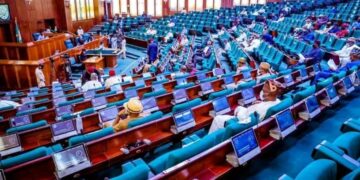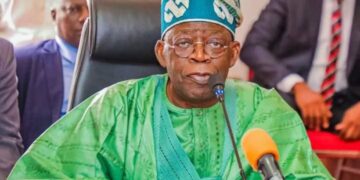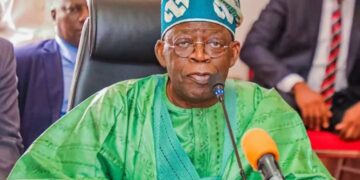Mali’s military government has shut down all political parties and banned their activities across the country. Anyone who disobeys the order faces sanctions.
The announcement was made on state television on Tuesday. It followed an emergency government meeting where officials also scrapped the national charter on political parties.
“We are in a process of reforms,” said Mamani Nassiré, the minister in charge of political reform and the electoral process. He said new laws would be drafted to manage political life in Mali.
The government wants to reduce the number of parties, make it harder to create new ones and possibly stop public funding.
Officials who were appointed to jobs through political parties can stay in their posts, but they can no longer speak or act on behalf of those parties.
Opposition silenced
Political groups had been warning for weeks that the move was unconstitutional and a threat to democracy.
In early May, protests began – a rare show of public resistance in Mali. But in the days that followed, several opposition leaders were taken by state security forces. Pro-democracy groups have largely gone quiet.
“No surprise. We will continue to fight, even in the shadows. This dissolution adds to Mali’s already numerous problems,” said one activist who spoke to RFI.
“A logical continuation, but serious and unprecedented,” said a former minister.
Another opposition figure said the decision “opens the boulevard to autocratic power”. They added: “Our ideas will be expressed one way or another. Their only concern is keeping power. The struggle will be organised and we will win.”
Protests grow in Mali as opposition leader faces trial over junta criticism
Return to dictatorship
The decree marked a return to dictatorship, an opponent said, referring to the rule of General Moussa Traoré, who led Mali until 1991.
“With this decree, we have officially returned to dictatorship,” the person said. “The fight will be tough, but Malians are historically committed to democracy,” they added, citing the 1236 Mandé Charter, often described as “an early declaration of human rights”.
Some political figures may try to take legal action, but because the parties are now dissolved, they cannot act in their own names. Public protest now also carries more risk.
The decision came after a national conference held last month. Participants recommended dissolving political parties and giving military leader Assimi Goïta a five-year presidential term. Goïta took power after two coups, in 2020 and 2021.
Public anger has been growing. On 3 and 4 May, hundreds of people protested in Bamako, holding signs and chanting “Down with dictatorship, long live democracy”, Reuters reported.
Authorities suspended political activity last Friday, forcing the opposition to cancel a planned protest.
West African group Ecowas turns 50 amid struggle to stay united
Opposition figures missing
Three opposition leaders are now feared to have been abducted.
Abba Alhassane, secretary general of the opposition party CODEM, was arrested last week by “masked gunmen claiming to be gendarmes”, said Human Rights Watch.
Keep up to date with international news by downloading the RFI app
That same day, “unidentified men” reportedly seized El Bachir Thiam, leader of the Yelema party, in the town of Kati near Bamako.
On Tuesday, a CODEM member told Reuters that the party had not heard from youth leader Abdoul Karim Traoré for two days and believed he had also been taken. The person asked not to be named for safety reasons.
Mali’s security ministry has not responded to requests for comment.
The military government had promised to hold elections in February 2022, but the transition to civilian rule has been repeatedly delayed.










































Discussion about this post